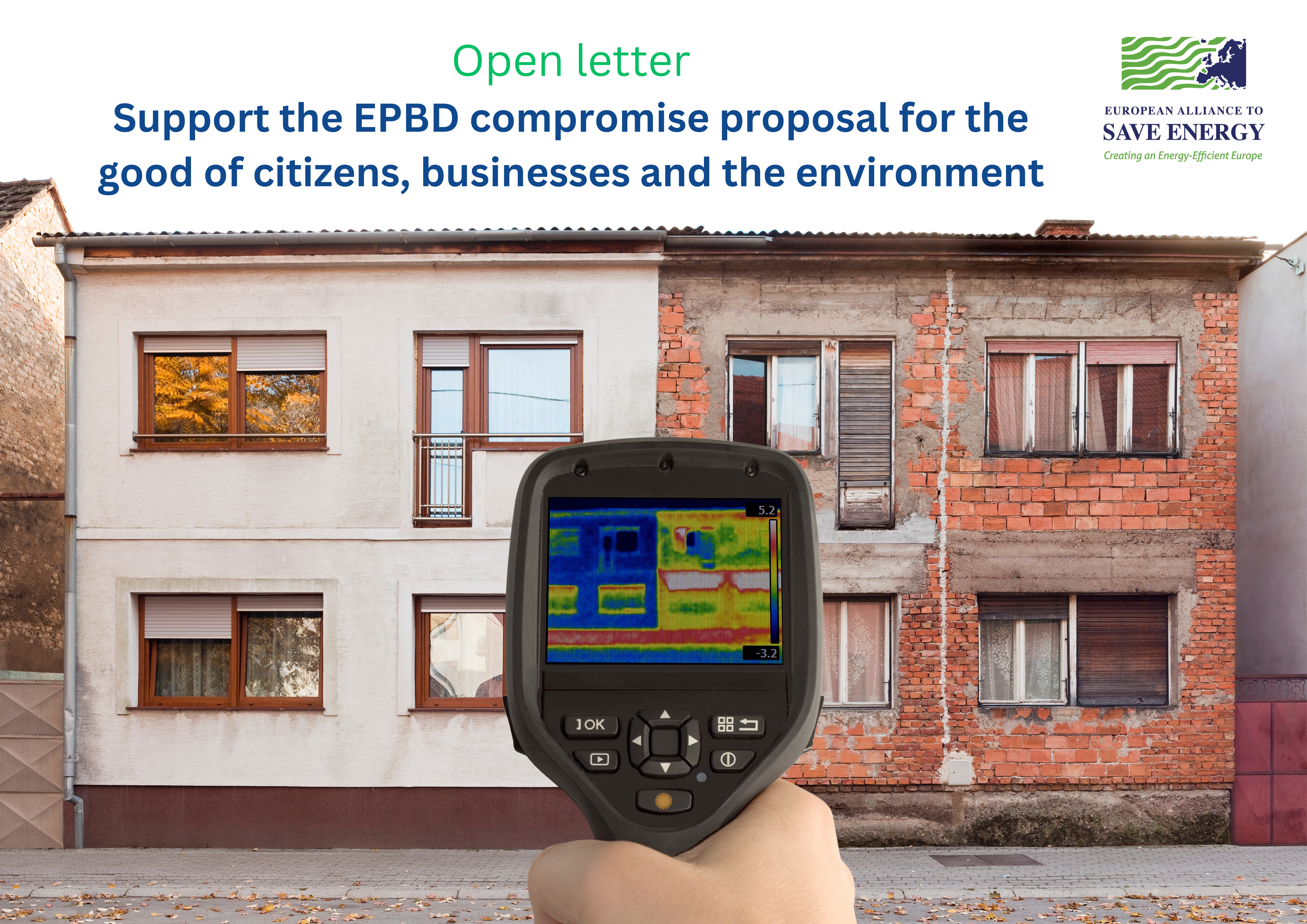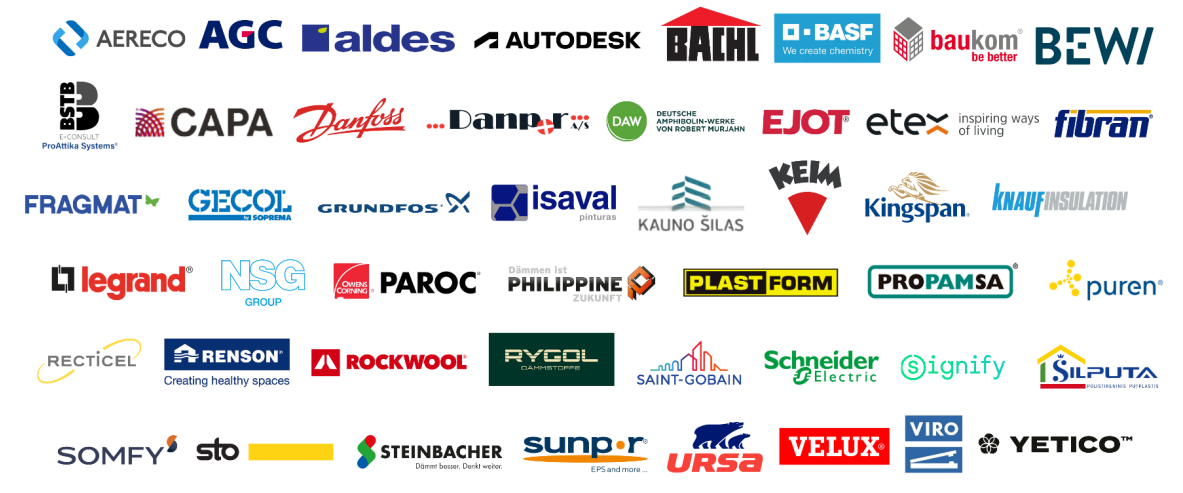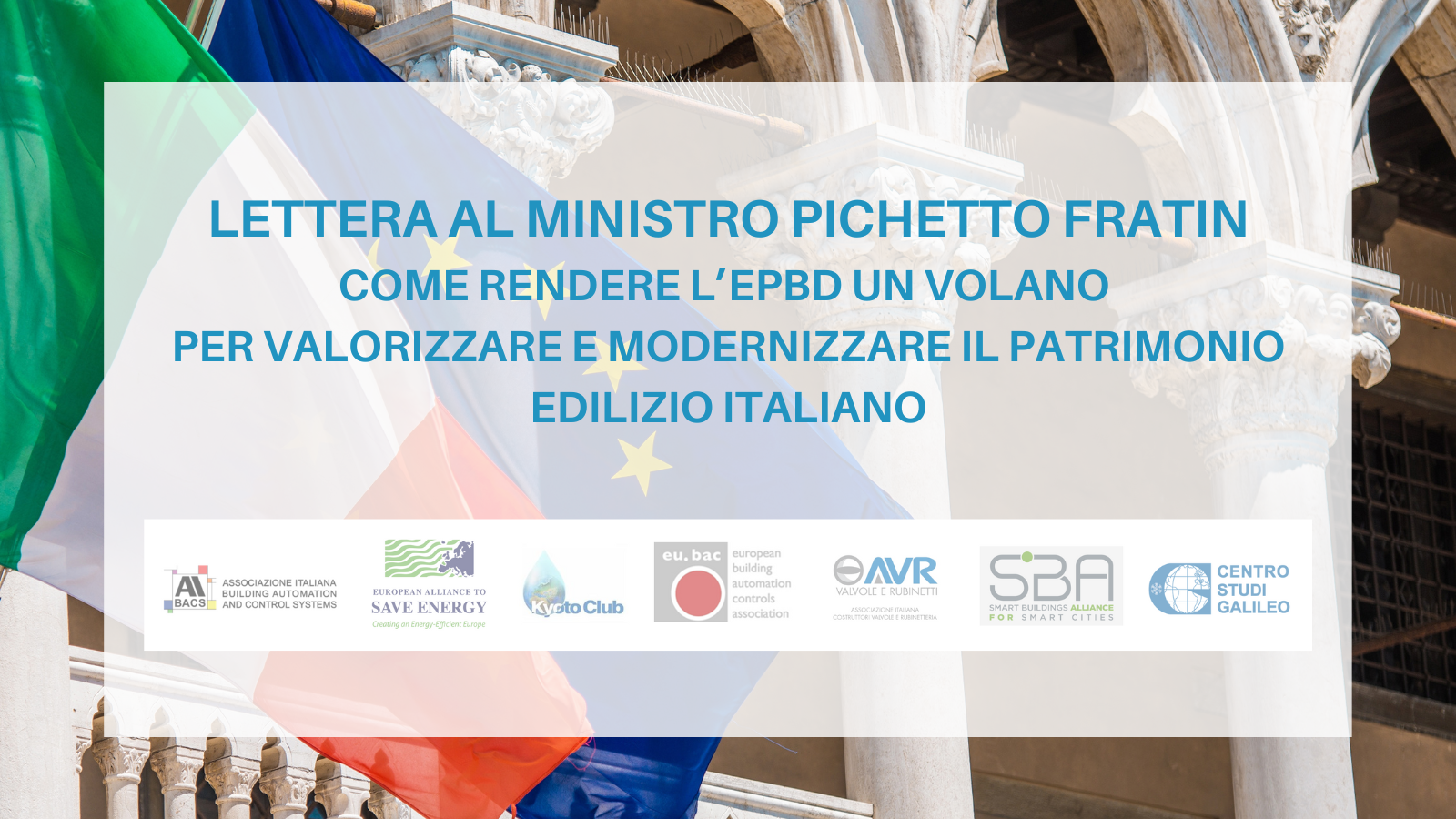EPBD recast: EU-ASE calls on MEPs to green-light ITRE compromise proposal

In view of the plenary vote in the European Parliament on the EU Energy Performance of Buildings Directive (EPBD), EU-ASE addressed MEPs in an open letter calling them to confirm the text recently adopted by the ITRE Committee and supported by the main political groups and progressive stakeholders.
The EPBD is a crucial element to make the EU building stock efficient, sustainable and healthy. From a socio-economic perspective, it will drive sustainable growth and job creation in the construction sector, one of the most dynamic of our economy. The broadly supported compromise proposal recently adopted by the ITRE Committee is an important step in the right direction.
As EU-ASE, we support the introduction of Minimum Energy Performance Standards (MEPS) for public, commercial and residential buildings. MEPS, with clear targets for the different building segments, are critical to provide predictability to the sector and allow businesses to effectively plan their investments (including the financial sector).
The ITRE compromise adds a derogation (Article 9, 1c) allowing Member States to adjust minimum energy performance standards for residential buildings and publicly owned social housing. Such derogation leaves enough leeway for the Member States and cannot be expanded further without jeopardising the implementation of MEPS.
As a complementary step, it is essential to ensure the harmonisation of energy performance classes (EPC) across Member States, overcoming the current system of different thresholds based on national criteria, which creates enormous comparability issues. Defining the worst-performing 15% of each Member State’s building stock as class G is a good step towards further harmonisation. At the same time, further efforts will be needed to ensure the convergence of the EPC scale.
We support the agreed timelines to ensure that all new buildings are Zero-Emission Buildings, starting from new buildings occupied, operated or owned by public authorities. As public buildings represent 5% to 10% of the EU energy consumption, their contribution to achieving an efficient and decarbonised building stock is crucial. The public sector must showcase the benefits of energy savings to citizens and stimulate investments in the renovation market.




